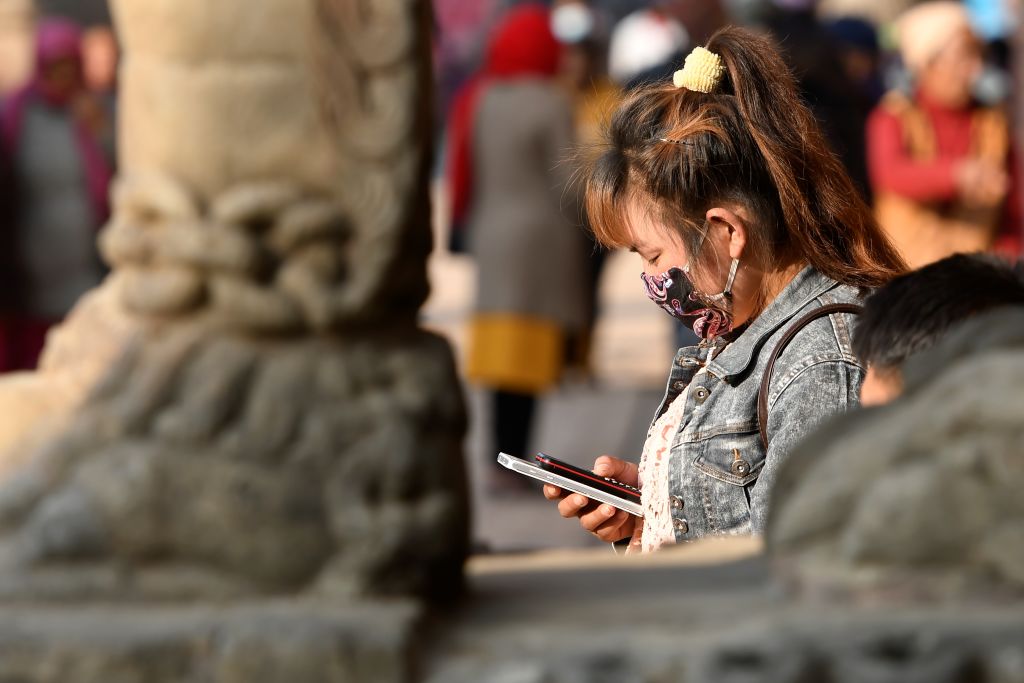
The Nepali government announced in a cabinet meeting Monday that TikTok would be banned to the country’s 2.2 million users to protect “social harmony.” The sweeping move comes just days after authorities issued a directive tightening content regulation on all social media sites.
The ban comes in response to public claims that TikTok encourages hate speech, according to authorities. Rekha Sharma, the country’s minister for communications and information technology, said at the cabinet meeting that TikTok was disrupting “our social harmony, family structure and family relations.”
The Nepali government said that they had reached out to TikTok multiple times but the company declined to address their concerns about the content; Narayan Kaji Shrestha, the home minister, suggested a ban on the entire app since scrubbing offending videos individually would be too tricky, the New York Times reported.
While authorities said on Monday that the ban was immediate, it is unclear when users will lose access to the platform. Some internet service providers had already cut access to the app while others would do it soon, the chairman of the Nepal Telecommunications Authority told Reuters on Monday.
Last week, the government released a directive for social media platforms outlining forbidden content, which includes hate speech, the promotion of sexual exploitation and drugs, fake news, terrorism-related messages, and private photos posted without consent.
All social media companies are also mandated to open liaison offices in Nepal so that they can better address public concerns and remove offending content. Tech giants like Facebook, X, and Instagram, which now have three months to set up offices or appoint representatives in Nepal, are also required to register with the Ministry of Information and Communication Technology—or face a shutdown like TikTok.
The Chinese-owned app, which surged in global popularity during the pandemic, has faced regulatory hurdles across the world among governments wary of China’s influence. It has been banned in India since 2020 after an escalation in a longstanding territorial dispute with China. Meanwhile, the U.S., Australia, and several European countries banned the app on government-issued mobile phones among civil servants, citing national security concerns.
More From TIME
Read More: Why the U.S. and Other Countries Want to Ban or Restrict TikTok
Within Nepal, the TikTok ban has triggered mixed responses. Gagan Thapa, the general secretary of the Nepali Congress, said that the ban serves political purposes more than it offers genuine protection to users.
"Regulation is required to discourage those misusing social networking sites, but it is totally wrong to shut them down in the name of regulation,” Thapa wrote in a Facebook post, adding that the intention behind the ban is to shrink the space for the “freedom of expression and personal freedom.”
Civil society groups are also urging authorities to reconsider the ban, which they say stifles constructive online discussions and may also affect content creators who depend on the platform for their livelihoods.
“By completely banning Tiktok, the government's intention appears to be to block this important platform of communication and expression,” said a joint statement by local journalists and non-governmental organizations, adding that the ban would “[limit] the opportunities of Nepalese citizens to engage in online conversations, share their views and participate in the global digital community.”
Read More: Vietnam Cites Child Safety in Calls for Greater Social Media Censorship Used to Stifle Dissent
More Must-Reads From TIME
- The 100 Most Influential People of 2024
- Coco Gauff Is Playing for Herself Now
- Scenes From Pro-Palestinian Encampments Across U.S. Universities
- 6 Compliments That Land Every Time
- If You're Dating Right Now , You're Brave: Column
- The AI That Could Heal a Divided Internet
- Fallout Is a Brilliant Model for the Future of Video Game Adaptations
- Want Weekly Recs on What to Watch, Read, and More? Sign Up for Worth Your Time
Contact us at letters@time.com